
The state of plastics
Many Co-op owners and shoppers have shared their interest in reducing plastic usage in the store. From bioplastics, to compostable plastics to recycling options, the Ashland Food Co-op continues to research what works best as we move towards our goal of being a zero waste store. Here is where we stand.
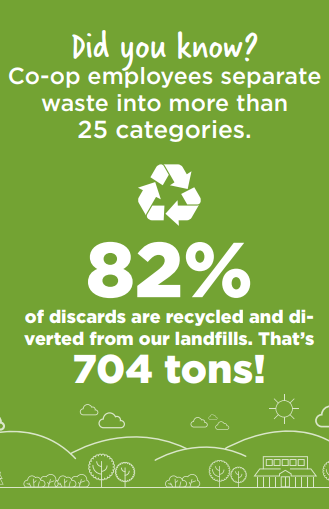
Right now, there is a trade-off in terms of food and plastic waste. Plastic is extraordinarily unique in its ability to preserve food and prevent spoilage and waste. But the trade-off is its very long lifespan.
Reducing plastic waste - by using alternative storage materials, or going package-free when possible - results in more food spoilage and waste, which can sometimes have a bigger ‘carbon footprint’ than plastic use alone.
The best way to summarize: as of March 2019, no perfect solution for plastic alternatives exist.
This isn't meant to make excuses for waste - as you may know, we already divert over 80% of our waste from the landfill. But it is important to know where things stand, and what some of the many decision-making factors are, that go into this debate about containers and plastic. Let’s break it down:
Bioplastics
Bioplastics often come from unsustainable sources - for example, monocropped GMO corn that could be used to feed people, or is grown on the other side of the country and requires a large carbon input to deliver.
As the name implies, bioplastics often have lifespans as long as petroleum plastics - they’re still plastic! The “end of life” assessment for bioplastics is not much better than petroleum plastics. For example, a single-use plastic fork made from GMO corn will still end up in the landfill.
Though there are recyclable and compostable bioplastics, they often require specialized machinery at waste disposal sites to be broken down. Our region does not currently have that infrastructure, and the additional carbon footprint to ship these materials elsewhere can quickly outweigh the ‘bio’ benefits.
The Co-op continues to explore options in this area: more readily compostable bioplastic bags are hitting the market which we will continue to test.
Alternatives to plastic
AFC has brought in cardboard packaging for some produce, like cherry tomatoes and strawberries. And yes, they are completely recyclable!
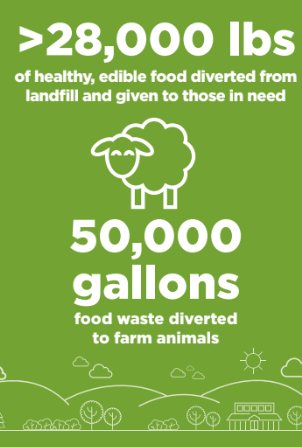
However, it can be difficult for customers to visually connect with the product - can you tell how juicy and ripe those strawberries are through the cardboard? Without that visual connection, a shopper may be hesitant to buy the product, inadvertently leading to more food waste (because the product stays on the shelf longer).
Cardboard also leads to more spoilage because of the lack of light and its ability to carry moisture (leading to molding).
Is generating more food waste an acceptable trade-off to having recyclable and compostable packaging? This is another instance where analyzing production inputs and requirements, instead of just ‘end-of-life’ issues for packaging, gives a better idea of the sustainability of a packaging type.
Plastics recycling
Many plastics are no longer being accepted by local waste management services. Generally, white, rigid plastics (example: yogurt containers) are still being recycled; clear, non-rigid plastics (soda bottles, salsa containers) are not. So buy smart!
Clamshells are a common area of concern. The Co-op is very lucky to be able to recycle plastic clamshells from products that were purchased at AFC. You can bring those clamshells back into the store for recycling. Even better, this recycling is more carbon neutral because the clamshells hitch a ride back to Eugene on existing truck routes (rather than a one-off transit run).
If you're purchasing greens, you can also bring your own container to fill from the bulk spinach and baby greens bins. Alternatively, OrganicGirl salad clamshells are made of 100% recycled plastic.
Our commitment
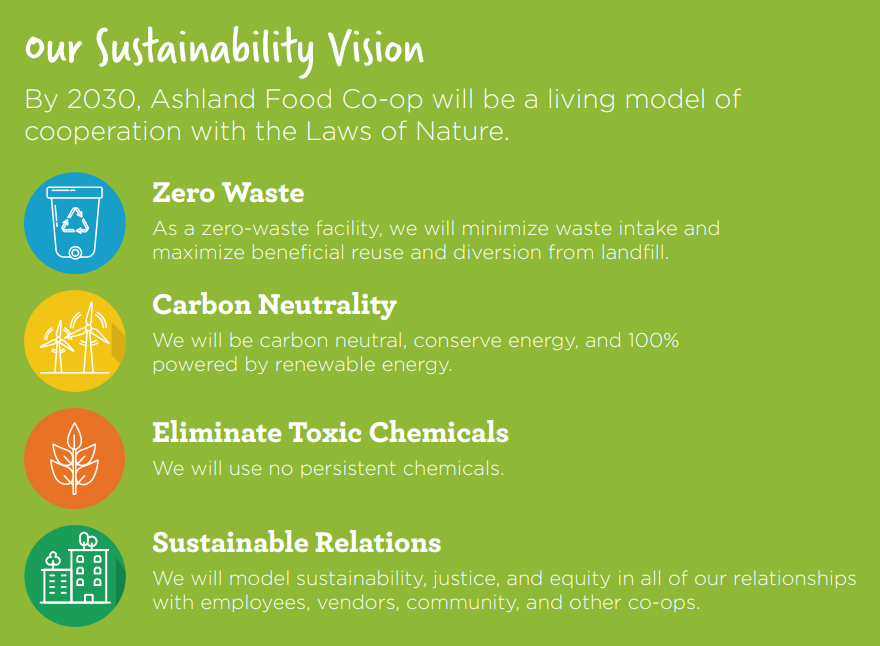
It’s easy to see that with the options available right now, there’s always a trade-off. In our own store and through the National Co-op Grocers network, we continue to look for a solution that is not petroleum-based, non-GMO, and that can be recycled or composted fully. When that solution arrives, we will be ready!
Right now, you should aim to reduce your overall plastic consumption when making purchasing decisions; choose reusable packaging when you do have to purchase plastic (clear salsa packages make great storage for leftovers); and choose recyclable plastic (white plastic and clamshells) if you think you’ll only get one use out of the packaging.
For some additional reading on the topic of plastics and packaging, check out this report put together by the Oregon Department of Environmental Quality.
More Co-op News
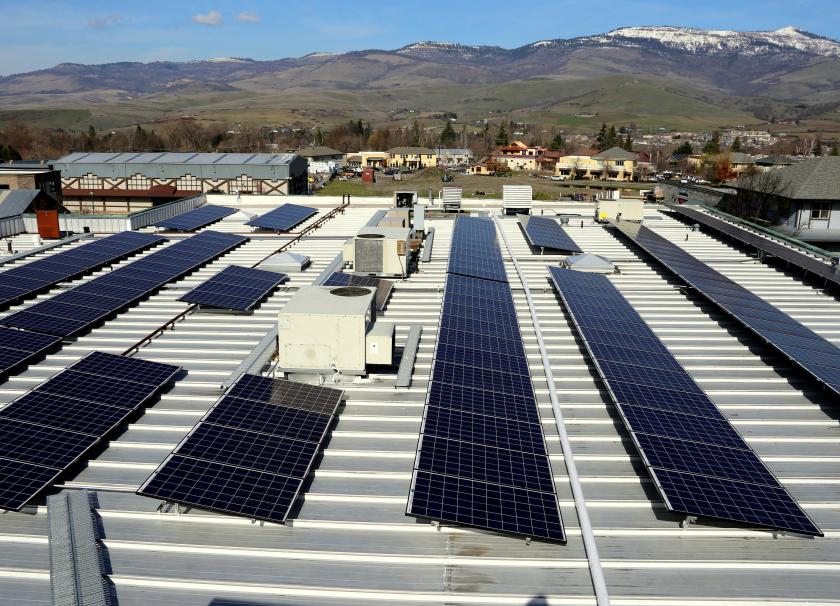
On the Road to Sustainability
By Laura Pfister, Media Coordinator
Forty six years ago, a group of families formed a buying club to access sustainable, local organic food as an alternative to modern industrial agriculture. This humble foundation of social and environmental responsibility started the Ashland Food Co-op and has shaped every decision we’ve ever made. It’s how, over four decades later, that a small buying club became a 30 million dollar, 17,500 square foot Certified Organic Retailer diverting 82% of their discards from the landfill.
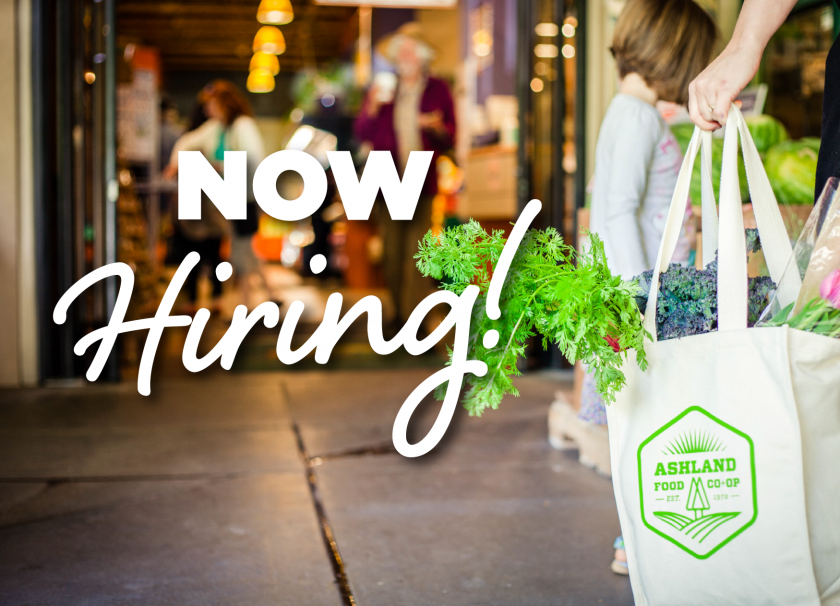
Staff Picks: Earth Friendly Products
In celebration of Sustainability Month in April, we asked our Sustainability Committee to share their favorite eco-friendly product.

2018 Kids Summer Camps
We’ve teamed up with Rogue Valley Farm to School to offer three different camps this summer. Each week campers will dive into food production, preparation and exploration, with a mix of farm and kitchen experiences that delight the senses and inspire the soul. Join Rogue Valley Farm to School staff as they cultivate the ability to grow and cook delicious, healthy, seasonal meals. Monday - Wednesday at the Co-op Community Classroom, Thursday & Friday at the Farm at SOU.
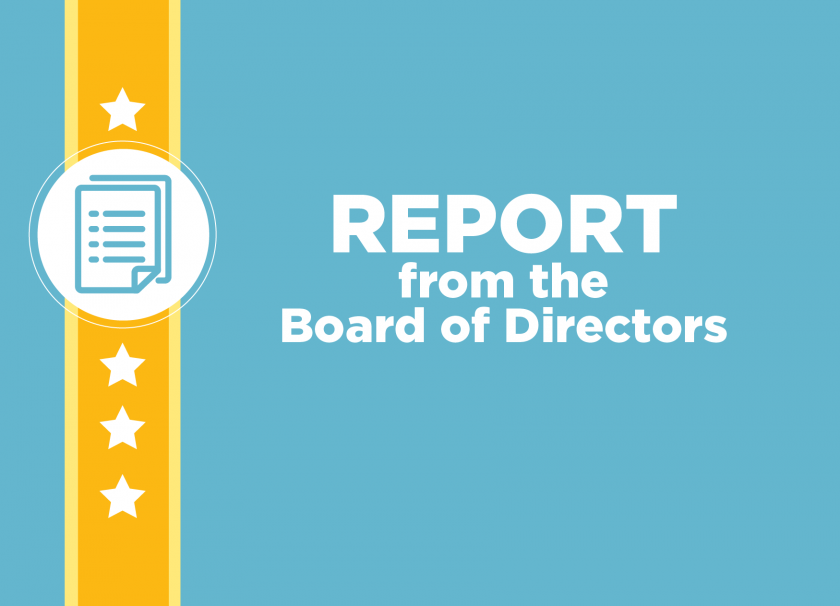
Update on our Strategic Initiatives
By Ed Claassen, Board President
Your Board and Management Team invested a significant amount of time in 2014 developing a set of strategic initiatives that we believe are vital in shaping the future of our business and furthering our mission. We formed a Strategic Planning Steering Committee consisting of 3 Board members and 3 Management Team members to guide the implementation of these initiatives.
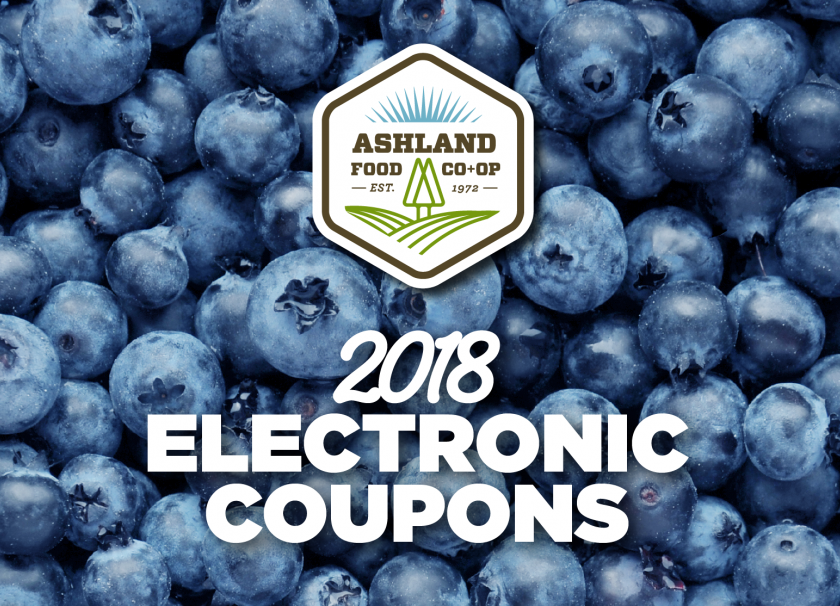
2018 Electronic Coupon Schedule
To further our sustainability efforts and to serve you better, we began offering Electronic Owner Coupons in January 2017 at the register.
No more forgetting to bring your owner coupons. No more waiting for your newsletter to arrive. Cashiers simply ask if you want to use your owner coupons when you check out.
As we enter our second year of Electronic Coupons we wanted to share a couple of friendly reminders and the 2018 month by month schedule.
Please note:
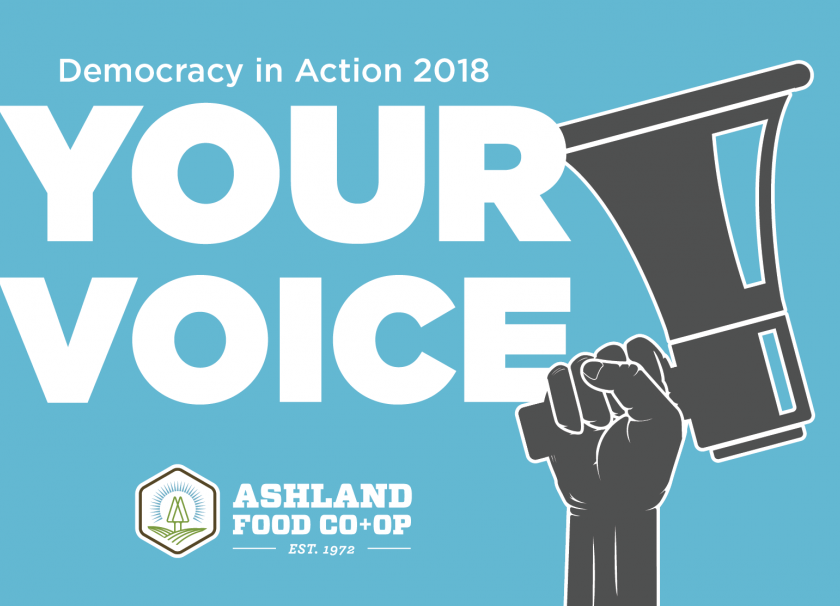
What Does Democracy Have to Do with Cooperatives?
By Annie Hoy, Marketing Manager
We often refer to cooperatives as “democratic enterprises.” But what does that really mean? The Ashland Food Co-op, like all other co-ops in most economic sectors, is owned and controlled by the people who use its services.
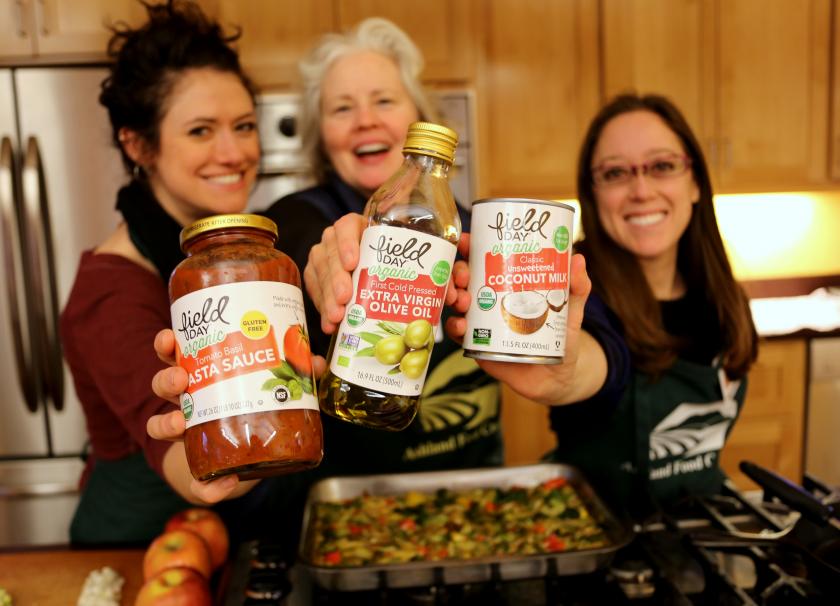
Co+op Basics: High Integrity, Low Price
Looking to stretch your grocery budget? So are we! We've lowered the price on over three hundred items to create a set of high integrity staples for every shopper. Welcome to Co+op Basics.
Co+op Basics includes over 300 pantry and household staples. From beef to milk to cereal, we’ve lowered the margin and price on all those items to make organic, healthy food accessible to every shopper.
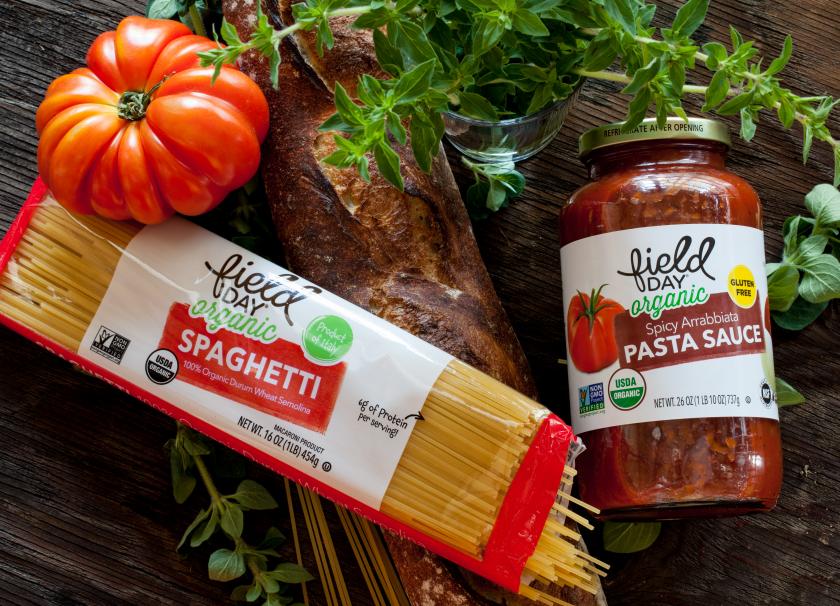
Co+op Basics Staff Favorites
After the holidays, we usually find our pocket books a little lighter. Here are a few favorite Co+op Basics items our staff turn to when the money is a little tighter.
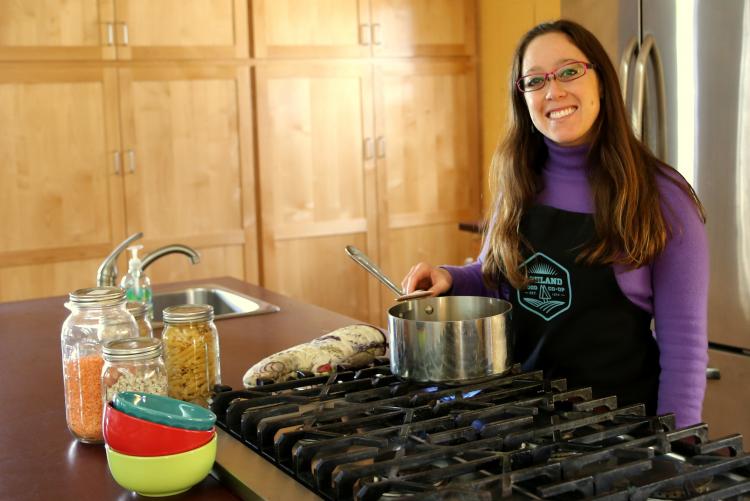
Proposals Sought for the 2018 Community Grants
The funding cycle for the 2018 Co-op Community Grants for nonprofit organizations is now open.
Every spring, for more than 20 years, we’ve been donating to area nonprofits through our Community Grant program. We are committed to creating healthy, sustainable communities and this program helps us fulfill that commitment by supporting the amazing work of local nonprofits. The Community Grant program is also the highlight of Cooperative Principle 7, Concern for Community, and is something we take to heart.
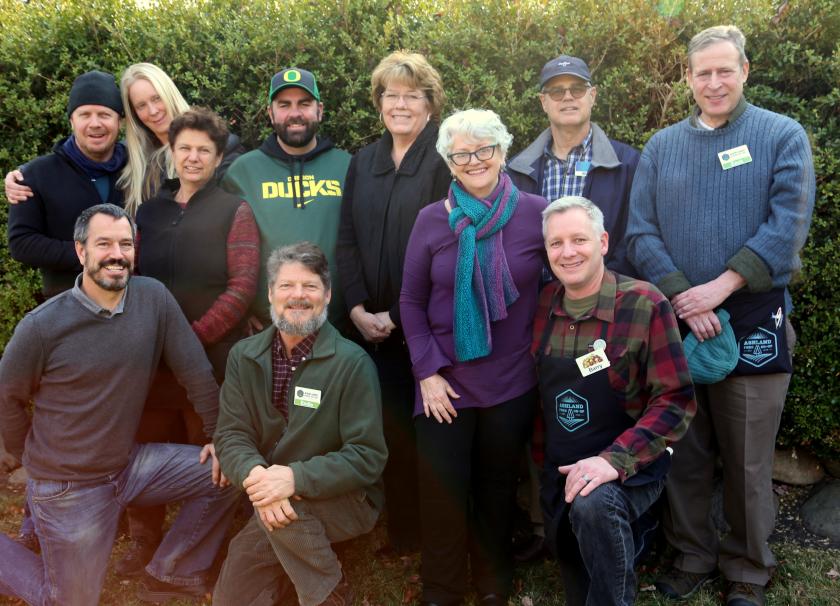
From the General Manager’s Desk
By Emile Amarotico
As we commence our lap around the sun in 2018, I wish to recognize the longstanding contributions of an amazing group of professionals. We are blessed with the dedication of eleven department managers expertly coordinating the daily flow of people, products and services that breath life into our Co-op!
-
Lynne (35+ years’ tenure) our Grocery Manager oversees keeping the aisles abundant with shelf stable products and coolers full of fresh perishables.
The Role of the Board in Co-op Governance
By Gwyneth Bowman, Vice President
After serving on the AFC Board for fourteen years my passion for the Co-op model has strengthened my commitment to the Cooperative Principles and Values. Of special importance is how we work together as a governing body with one voice. We are the ultimate decision-makers of our Co-op and hold a trusteeship for the benefit of our owners and community.
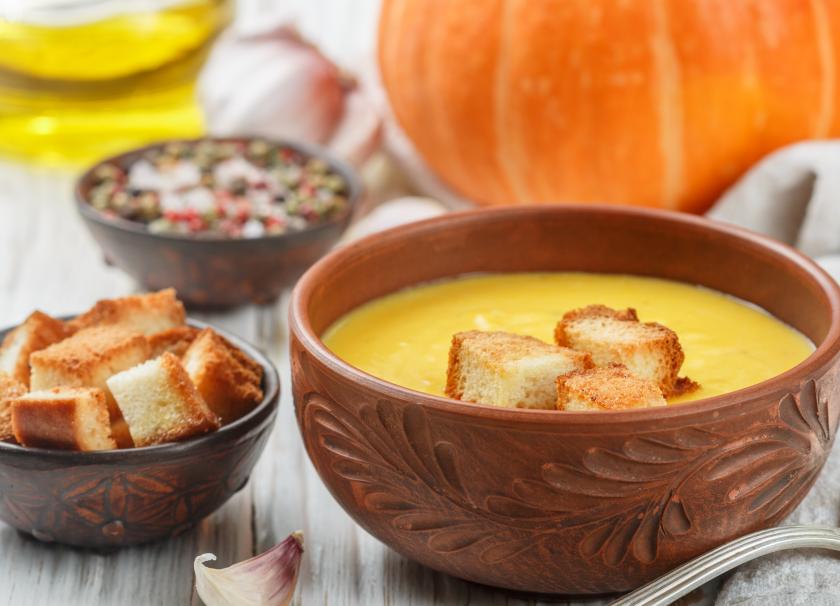
Fall Favorites from the Co-op
Like it or not, the cool weather has arrived. Whether you are heading out for a hike or enjoying a good book by the fire, the Co-op Deli has what you need to fuel your favorite fall activity. Stay warm with these comfort food recommendations from the Co-op Deli.
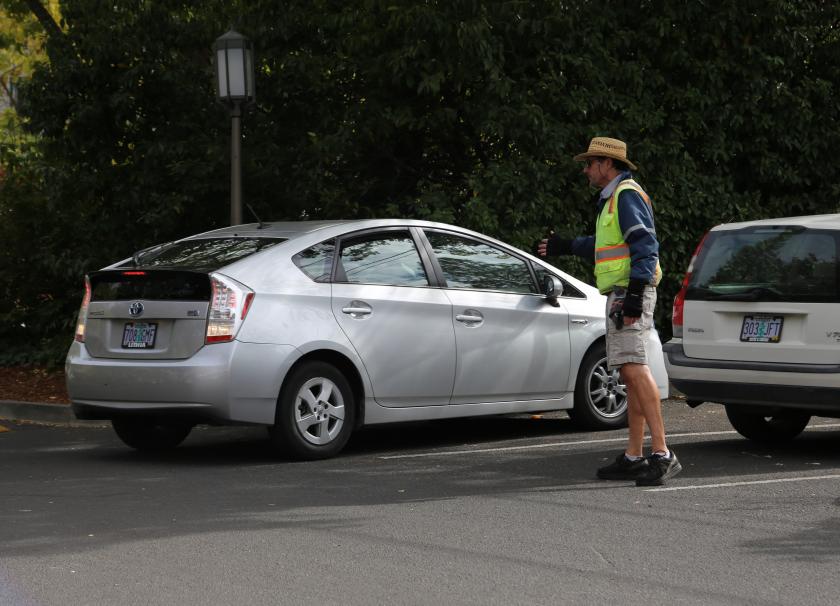
From the General Manager's Desk
By Emile Amarotico
A recent visitor commented that our parking is totally inadequate to our business volume. What’s true is that we cannot create more parking due to space and municipal code constraints. Thus, the value of each available space is increasing over time. Assuming only half of Co-op shoppers use automobile parking, each space supports at least $200,000 in annual sales.

Meet Board of Director Julie O'Dwyer
When not working on Board of Director efforts, my profession is an Interior and Building Designer. I own the Ashland Design Studio, located in the Historic Railroad District, and have a design services studio there - JulieO Design. I have been in the architectural design business my whole life; from crawling around my father's architectural studio to traveling around the world working on buildings large and small to now having created my own niche in the local building community. I took a few years off this path to own and run Tease Restaurant here in Ashland.
